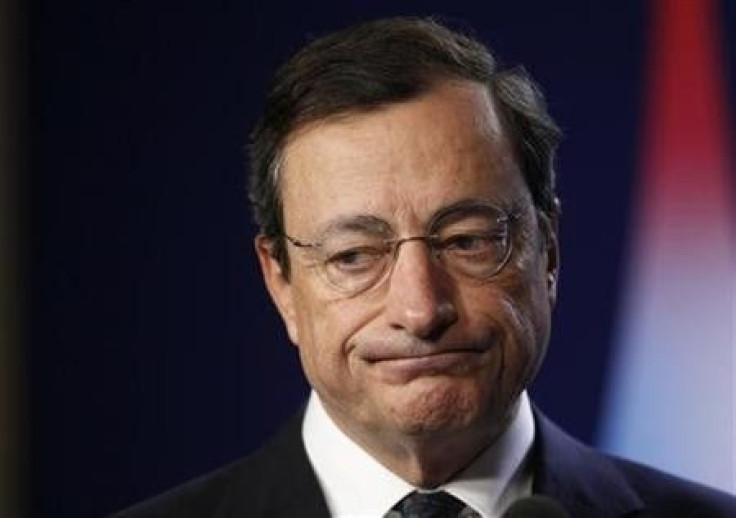German 'Wise Men' Warn ECB is Risking Credibility

BERLIN (Reuters) - Germany's wise men panel of economic advisers warned the European Central Bank it risks losing credibility by buying the bonds of heavily-indebted euro zone states, and that monetary and fiscal policy are becoming worryingly blurred.
The group, which advises the German government, said in a report published on Wednesday: The bond buying program dismantles market discipline without establishing any political discipline in its place.
In blurring monetary and fiscal policy, the report said, the ECB is jeopardizing its credibility, because it is falling under the suspicion of monetizing sovereign indebtedness.
Germany strongly objects to the bond-buying strategy but the ECB's new president Mario Draghi has signaled the bank is ready to carry on buying bonds of troubled euro zone governments.
The wise men said they expected the bank to make a further cut in the key euro zone interest rate to 1 percent by the end of 2011, and that rates would remain at this level throughout 2012.
In the report, the panel suggested a different method for increasing the euro zone's capacity to prevent contagion from the debt crisis, should the 440 billion-euro European Financial Stability Facility (EFSF) not suffice.
In what the wise men said would be a departure from current models of securing debt with ever more borrowing, they advised setting up a European Redemption Pact.
This would involve countries with sovereign debt above 60 percent of GDP pooling their excess debt into a redemption fund with common liability. They would commit to reforms and see their debts repaid over 20-25 years.
But Germany's Chancellor Angela Merkel said the proposal would face several constitutional problems that would require changes of European treaties. She also said the proposal would be impossible to implement in reality.
Within a few years the redemption fund could have a volume of 2.3 billion euros worth of bonds, the study said.
GERMAN SLOW-DOWN
Germany, the euro zone's largest economy and growth engine of the last two years, is expected to see economic expansion stutter in coming quarters as the euro zone debt crisis saps business and consumer confidence and export markets shrink.
The wise men forecast economic growth of 0.9 percent in 2012, slightly below the 1.0 percent forecast by the government, which last month almost halved its estimate from a previous 1.8 percent.
Growth this year was seen at a healthy 3 percent.
The economic recovery continued during 2011 and for the full year, gross domestic product could reach levels seen before the crisis, the report said.
There should be a distinct momentum also in the third quarter, before the pace in business activity presumably weakens in the course of a global negative outlook. The situation may not turn brighter until mid-2012.
Domestic demand would be the main economic driver in 2012 as foreign demand weakens toward the end of this year and remains negative next year.
The panel of wise men expected German exports to grow 7.8 percent this year compared with the previous year, while growing at a slower pace of 3.2 percent next year.
It forecast imports to increase by 7.1 percent this year, followed by a 4.2 percent rise in 2012.
(Writing by Alexandra Hudson)
© Copyright Thomson Reuters 2024. All rights reserved.











